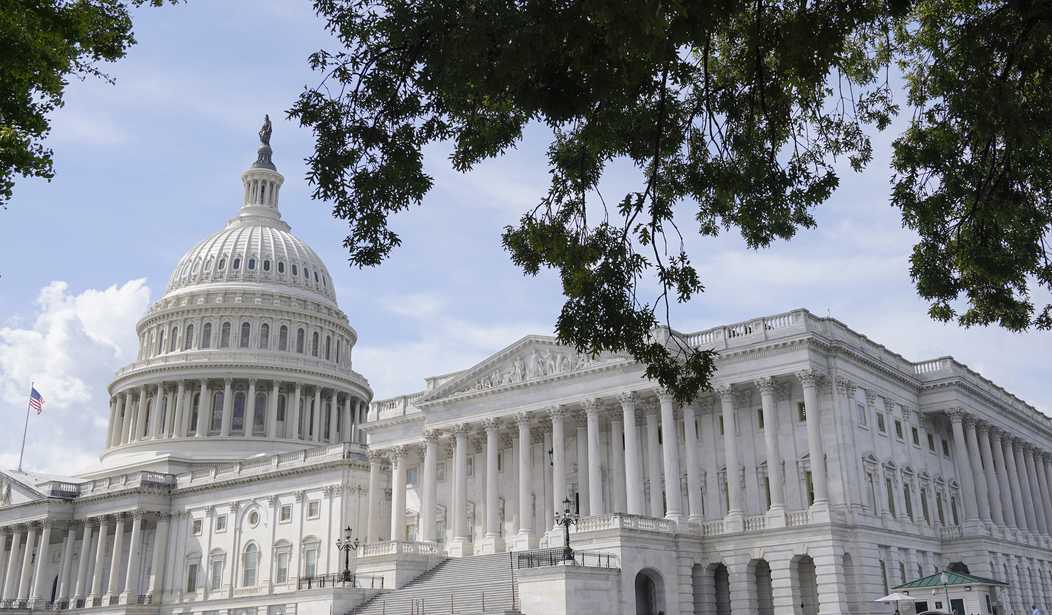Congress can no longer ‘beat around the bush’ on an issue critical to most, if not all, Americans today. American families and businesses have already been struggling to fight the cost of inflation, and as 2023 comes to a close it’s more important than ever for Republicans to pass a year-end tax package to provide a breath of relief to families.
With the risk of a government shutdown in 2023 now behind us, Congress must focus on the Child Tax Credit and fixing the amortization of R&D tax expensing—two very important items stemming from the 2017 Tax Cuts and Jobs Act that are at risk of expiring. Those pro-growth, pro-investment policies were not only negotiated on a bipartisan basis, families and small businesses have attributed them to their resilience in this current American economy. Those inside the Beltway should continue to provide that assurance for future families and businesses too.
Good anti-poverty policy is also good politics. The Child Tax Credit was expanded from $1,000 to $2,000, and increased income eligibility under the 2017 Tax Cuts and Jobs Act. The tax credit is used to cover a lot of the costs associated with raising kids—not bolstering savings or paying down debt. It was further expanded in the 2021 American Rescue Plan Act under President Biden to $3000, but while bipartisan consensus remains for the Child Tax Credit itself, Republicans agree that the 2021 plan is too costly to continue funding. A permanent $2,000 tax credit from the 2017 tax law provides a meaningful compromise that should remain front and center in ongoing negotiations.
Republicans, both new and old, have publicly advocated for a deal with Democrats. Newt Gingrich, Mike Huckabee, and Rick Santorum recently sent a letter to congressional leaders urging them to strengthen the Child Tax Credit in a year-end tax deal. Current officials like Marco Rubio and Rep. Brian Fitzpatrick have also advocated for extending the 2017 Child Tax Credit, although with new work requirements added in. Considering that inflation has already made it harder for families to put food on the table, it should be no surprise to read that child poverty rates are drastically increasing once again. Republicans would be wise to provide another win for the American people before 2024 in the face of the Biden administration’s damaging domestic policies.
Recommended
The R&D tax expense is equally as important to the public good, despite major differences from the Child Tax Credit. While not as important to families per se, it strengthens the American economy against foreign adversaries looking to undermine it. How so? The provision was intended to incentivize innovative research on behalf of American companies to deduct the costs of research and development. However, the 2017 Tax law changed the immediate expense to an amortization over five years, actually making businesses less likely to fund projects they cannot see gains for in the immediate future.
Continuing the R&D expense in its current amortization form would be detrimental to national security in the long run, as companies could theoretically begin to cede cutting-edge research to other nations, such as China. China is pouring more investment into its largest economic-driving industries than ever, and America’s economic leadership is just as important to our national security as our military might. Both sides of the aisle must once again work together and renegotiate the 2017 Tax Cuts and Jobs Act with an unmistakable incentive for businesses to continue their R&D expenses.
Allowing these commonsense tax incentives to expire and reverting to the old normal before the Tax Cuts and Jobs Act should be unthinkable. Allowing tax increases because of a failure by Congress would create irreparable trust in Washington for the foreseeable future and could cause many to question whether conservatives still believe in the prosperous, nuclear family. And while negotiations for a tax package are still wisely ongoing, a coherent, reasonable tax package that employs levels previously enjoyed by both parties should be passed by year’s end.
Andrew Langer is the President of the Institute for Liberty.

























Join the conversation as a VIP Member